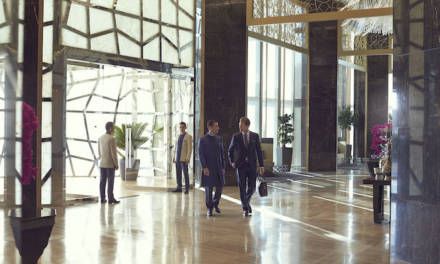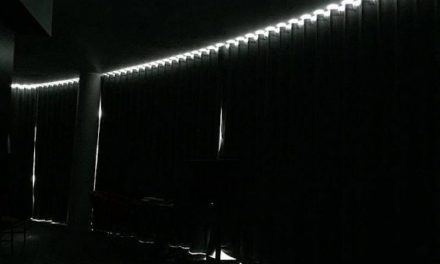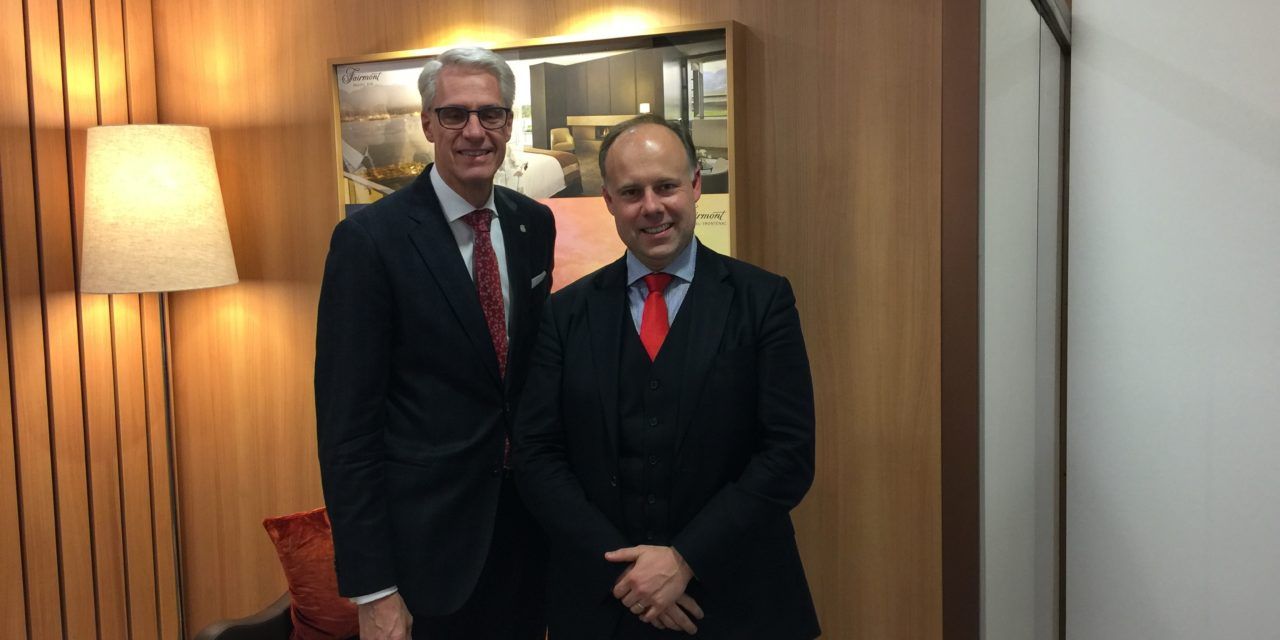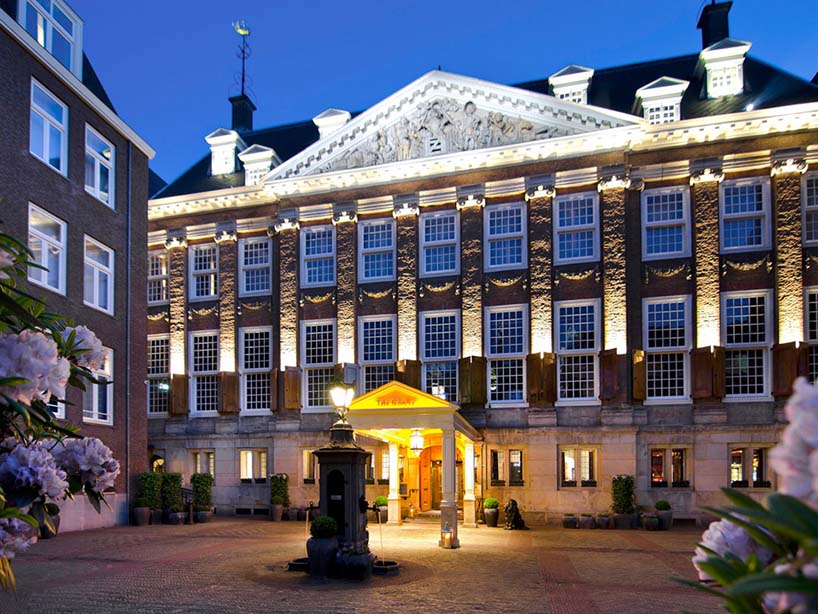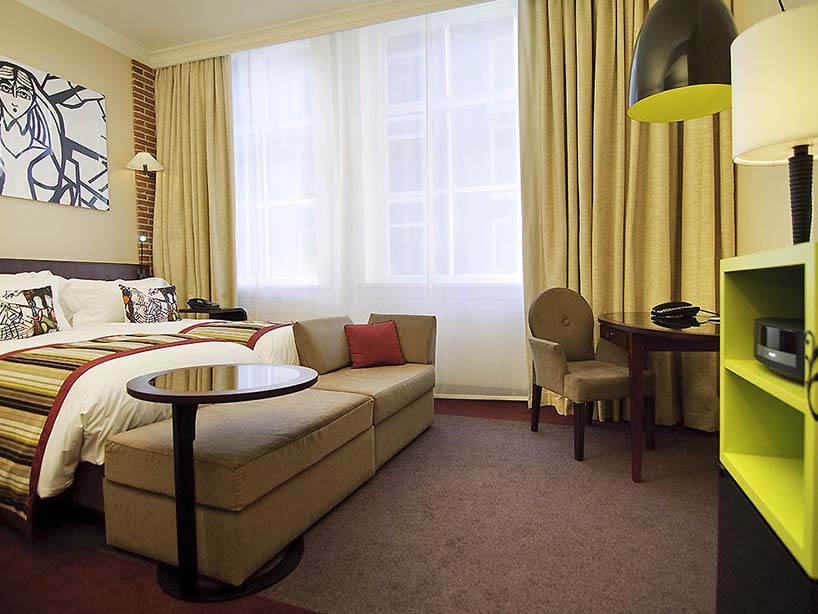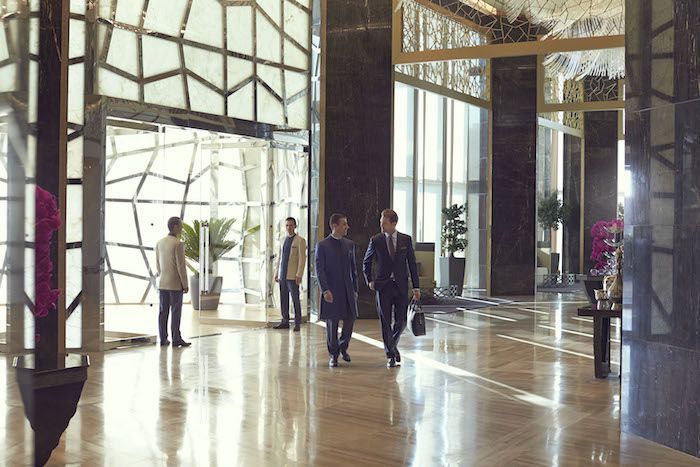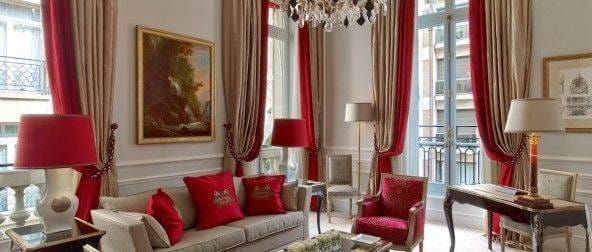True to its name, the Sofitel Legend the Grand Amsterdam is one of Amsterdam’s most legendary 5-star hotels, dating back since 1578. Having welcomed such guests as the de Medicis back in the day, the hotel is deeply anchored in the history of Amsterdam. Today the hotel is operated under the Accor Sofitel label, allowing it to marry the French art of welcoming with the local art of welcoming.
I was eager to discover the hotel’s secret for making this happen: I thus invite you to discover below my interview with Remco Groenhuijzen, General Manager of Sofitel Legend the Grand Amsterdam.
Sofitel – Amsterdam – Exterior
How do you define the art of welcoming in Sofitel Amsterdam?
The art of welcoming is to mix the French style of Sofitel the Grand with the local culture of Amsterdam. This building is very iconic, with 600 years of history. There’s a lot to tell about the history of Amsterdam in this hotel. Mixing that together with top service is what makes our hotel very special. We are the only hotel in Holland with butler service. We have our own butler team, so all these suites have their own butler service that makes the hotel even more unique in addition to the service that we already provide.
How do you manage your team to deliver unexpected services and to bring the best of themselves?
We do our best to provide special services for our guests in this hotel. This hotel is quite large. We have different nationalities and different segments. For instance, we have 19 meeting spaces—some historical ones and some contemporary ones. We have different ways of providing service to meeting guests, business guests and leisure guests. Training staff in that is very important. When somebody comes here for the first time as an employee, they receive training for the first half of the year on several fields. The most important service we provide here is what we call ‘cousu main’ training. ‘Cousu main’ is French for custom-made, and it means we teach our staff to connect with the guest and see exactly what they want through more custom-made experience. That sets us apart. The feedback that I get from our guests is that they really appreciate that my staff connect with them.
It’s always a challenge. When staff arrive at the hotel, I always explain to them that we are in tough competition in Amsterdam, so on a daily basis, we have to provide the best services for our guests. I always say that we’re in the Champion’s League of the hotel business, so we really have to be on top at every minute of the day and every time we have an encounter with the guest. This makes us very special, and that’s why we teach the ‘cousu main’ style of giving service—by listening well, connecting and seeing what we can do extra for our guests.
I always say that one thing our guests don’t have is time. They really want to enjoy to their utmost while they’re here, so we have to provide the right kind of service—fast and custom-made.
How do you envision the luxury hotel of the future?
In the future of luxury hotels, especially in Amsterdam, there will of course be a need for iconic hotels because people like to be in very special places. And that’s what we should offer to our guests, not only now or next year but in many years. What will change more, of course, is the technology. Nowadays, we have manual check-ins, but I think in a couple of years, that will be done more via technology, so that we can spend much more time with our clients to put them at ease and make sure they see the things they want to see and enjoy the experiences that they want to have. I think this will change more in 5 years or even 20 years but in the coming years, this will still be a place that people will want to stay at and make a part of their experience of visiting the city.
We have a one Michelin-star restaurant. What we are seeing in Amsterdam is that a lot of hotels of a lot of different styles are opening. So, in luxury hotels, we should also look at the trends and see how we can provide the offer for new trends in the culinary business. This is challenging because if we keep changing, it affects how we maintain constant quality, but we have to because people still want to experience something new. They want a different experience in the restaurant when they come to the hotel, so we have to be at peace with the fact that it will be a challenge, but I think it will also encourage the team to be responsive, so it’s a nice thing to work with them and provide it.
Sofitel – Amsterdam – Room
Known for his international expertise on luxury hotels through his magazine, Laurent Delporte shares his vision and experiences in the world of hotels on his site DELPORTE Hospitality. He decodes the behind-the-scenes action in the sector: from food and beverage facilities, accommodations, architecture, to the quality of services. He offers interviews, advice, and articles as pragmatic resources that industry professionals and private individuals can refer to in their search for information.


 HOME
HOME